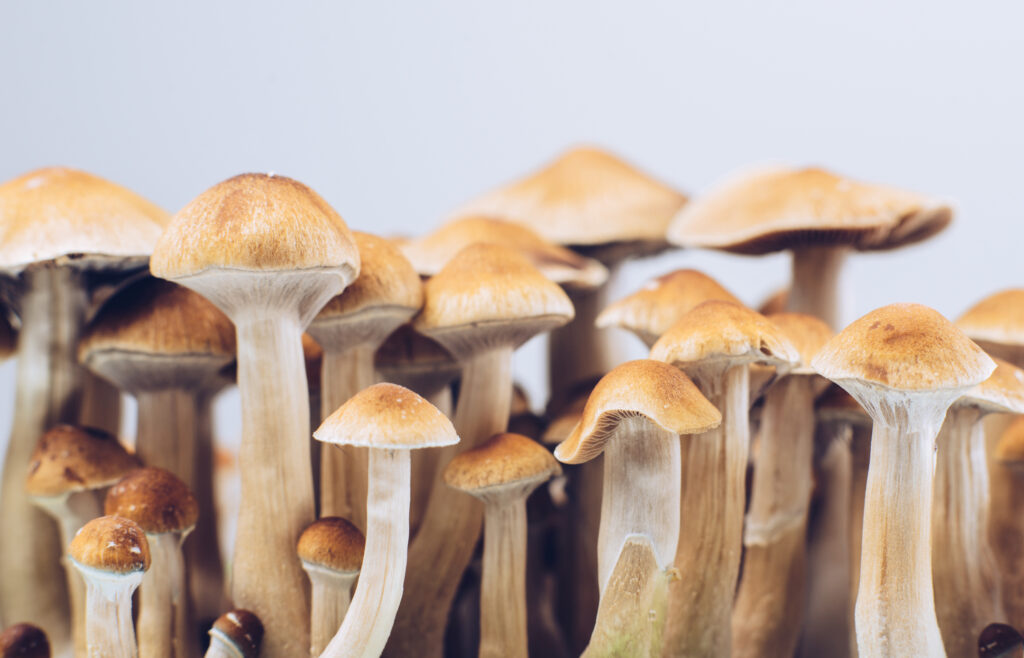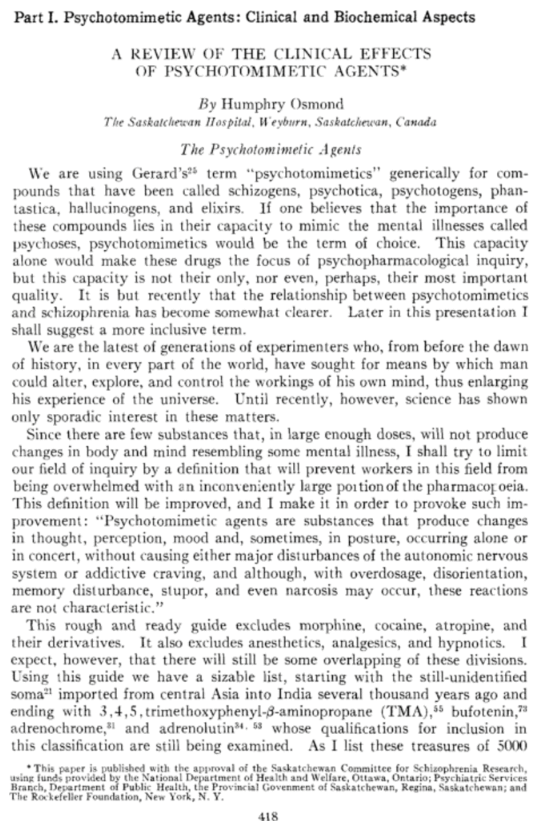The Origin of the Term “Psychedelic”
The man who is known to have supplied author Aldous Huxley with hallucinogenic drugs publicly coined the word “psychedelic” during an Academy event in 1957.
Published April 4, 2024
By Nick Fetty
Digital Content Manager

For many, the term “psychedelic” may conjure familiar images of the 1960s, mind-altering substances, and bands like Jefferson Airplane and the Grateful Dead. What may be less well known is that the public origin of the term itself can be traced to an event held at The New York Academy of Sciences.
Humphry Osmond was a psychiatrist, researcher, and professor of psychology at the University of Alabama. He served as a psychiatrist in the navy during World War II and after his service began conducting research on the use of hallucinogenic drugs to treat mental illness and substance abuse.
The Origins of LSD
Osmond was interested in the work of Swiss chemist Albert Hoffman who, in 1943, discovered the hallucinogenic drug lysergic acid diethylamide (LSD). This discovery actually came by accident, when Hoffman unknowingly ingested a small amount of the substance and experienced what’s believed to be the first “acid trip” as he rode his bike home, with some help from his assistant, after leaving the lab.
Word about the drug’s effects spread and eventually government intelligence agencies became intrigued in it’s (as well as mescaline’s) potential as a way to pry information out of individuals being interrogated. Osmond, however, saw a different application for the newly discovered drug and ironically enough thought it had potential to help treat substance abuse, specifically alcoholism.
Osmond moved to Saskatchewan, Canada in the early 1950s and conducted research at the Weyburn Mental Hospital with support from the Canadian government and the Rockefeller Foundation. Alongside Abram Hoffer, the duo experimented with LSD as a treatment, under carefully controlled conditions, for nearly 2000 patients struggling with alcoholism. The findings were quite promising, and the duo reported that 40 to 45 percent of those treated using LSD between 1954 and 1960 did not return to drinking after one year.

The Origin of the Term “Psychedelic”
During this era, Osmond connected with Aldous Huxley, the author renowned for his books Brave New World and The Doors of Perception. Osmond was known to supply Huxley with hallucinogenic drugs like LSD and mescaline.
Huxley and Osmond worked together to come up with a word to describe the effects of LSD. Huxley concocted “phanerothyme” by combining the Greek words for “to show” and “spirit” as well as the tagline: “To make this mundane world sublime, Take half a gram of phanerothyme.” Osmond, however, came up with his own phrase: psychedelic. He combined the Greek words for psyche (for mind or soul) and deloun (for show), along with his own rhyme: “To fathom Hell or soar angelic/Just take a pinch of psychedelic.” Osmond said the term meant “mind manifesting” and that it was “clear, euphonious and uncontaminated by other associations.”
Much like a user drops acid, Osmond dropped the term “psychedelic” during a meeting at The New York Academy of Sciences in 1957. His appearance at the Academy was part of his effort to discuss his research in this area, which was published as “A Review of the Clinical Effects of Psychotomimetic Agents” in the March 1957 issue of Annals of the New York Academy of Sciences.
A Revival of Alternative Therapies
However, as backlash to the “turn on, tune in, drop out” mantra of the 1960s, governments became concerned with the potential harm of the recreational use of LSD. New York State and California made it illegal to possess the substance in 1966, and four years later it became illegal at the federal level.
Research on using hallucinogenic drugs in medical applications has been revived in recent years and is now being studied to treat everything from substance abuse and depression to post-traumatic stress disorder and anxiety. In at least one case in Silicon Valley, some have experimented with microdosing of psychedelic drugs (LSD and psilocybin) to improve work performance in areas like concentration and problem solving.
The Academy has a long history of hosting events that promote the use of alternative therapies to treat ailments. Reports from The New Yorker discuss the Academy’s involvement with therapeutic uses of meprobamate in the 1950s and hypnosis in the 1970s, while reporting in The New York Times examined research on the medicinal benefits of cannabis presented at the Academy in the 1970s. Today, the Academy continues to promote promising alternative therapies, including during a 2023 conference that examined near death experiences and the use of psychedelics in medical treatment.
